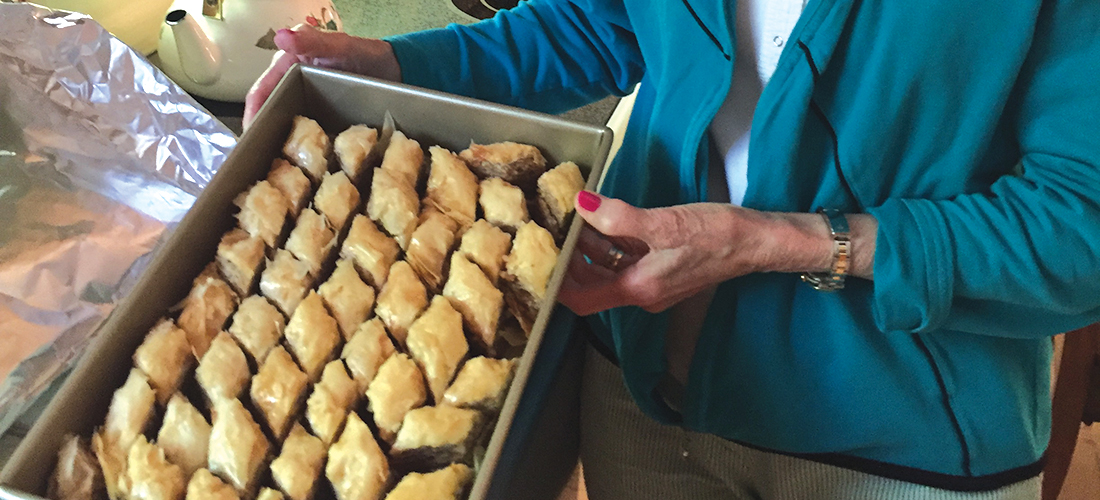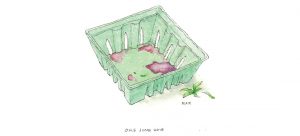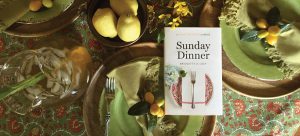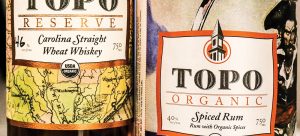
Baked into Memory
A familiar treat bridges generations
By Maria Johnson
“Do you make baklava?”
It’s a question I get fairly often from people who know I’m half Greek. But, seeing as how the Greek part came from my father, who did very little of the cooking when I was growing up, the answer is no.
Or it was no, until a few weeks ago.
That’s when I tied on an apron with 80-year-old Joanne Macropoulos, a stalwart at Dormition of the Theotokos Greek Orthodox Church in Greensboro.
For more than 40 years, as long as the church has had its annual Greek Festival, Joanne has helped to make and sell the pastries, a huge draw and moneymaker at the three-day wingding.
You know what I mean if you’ve inched along in the pastry line, waiting for your chance to salivate and shell out for the confections — the densely sweet baklava; the kourambiedes topped with powdered sugar; the twisted koulourakia; the shredded-wheat-look-alike kataifi; the nut-topped spice cookie melomakarona: and the wickedly moist yogurt cake, yaourtopeta.
These delicacies brought Joanne and me together. Sort of.
Technically, I met her in the intensive-care unit after my dad had a major stroke three years ago. But pastries, in a roundabout way, led to that connection.
Here’s how it happened: My dad loved the Greek festival. Specifically, he loved the pastries at the Greek festival. And therefore — even though he and my Methodist mom didn’t attend church there after they retired in Greensboro — our family’s attendance at the festival was mandatory.
Every year, about the time we finished our Athenian chicken and Spartan vegetable plates in the fellowship hall, Daddy would clear his throat and say, as if the thought had just occurred to him, “Would anybody like some pastries?”
This was our cue to nod, and say “Sure” and offer to buy them, at which point he would wave us off in an I-got-this gesture and shuffle off to the pastry table, where he’d drop a few phrases in Greek and wait until he got a nibble from another Greek speaker. He always hooked someone.
Pretty soon, he’d be telling some poor dear pastry lady, as succinctly as possible — which was not very — about how he came here from Greece as a kid and, I’m fast-forwarding here, about the amazing accomplishments of his entire family who were, in short, brilliant.
That’s when he’d start pointing at us from across the room. He’d wave. The pastry lady would wave. We’d waved back. And he’d return to the table with boxes, plural, of pastries. He was so happy in those moments.
This went on for 20 years.
Until the stroke.
The next morning, as my dad struggled to respond, we couldn’t tell how much he comprehended. I knew one thing for sure: The first language in would be the last language out.
I drove to the Greek church, where we’d had so many good times over pastries, and threw myself on the mercy of the priest, Father Thomas Newlin, who didn’t know me from Eve’s housecat.
Still, I asked: Did he know anyone, preferably a native of Greece, who could come to the hospital to talk and pray in Greek? He thought he did. I gave him the room number.
The next day, Joanne appeared. I’m not exaggerating when I say she looked like an angel. She was white-haired, erect, serene — one of those people who shines with a light from within. We roused my dad.
Joanne stepped up, touched his shoulder and spoke to him in Greek. Then she prayed. My dad — who before the stroke found a quiet place every morning and evening and prayed by himself, always in Greek — looked at her through heavy eyes. His right hand, the only hand he could move, trembled over his chest. He was trying to cross himself.
Joanne visited again, each time bearing pastries for our family, who kept a bedside vigil until Daddy died, at age 95, a couple of weeks later. Joanne came to the funeral, this lady who didn’t really know us, but somehow did. We knew her, too.
We continued to see her at Greek festivals — it seemed like a tradition we needed to carry on — but more often, Joanne and I ran into each other at the Spears Family YMCA, where we both work out.
One day, I stopped her in the hallway. We chatted for a while, and then I blurted out:
“Would you teach me to make baklava?”
I’m not sure where that came from. Maybe I was channeling my Greek yiayia and namesake, though I’m pretty sure she knew how to make baklava. Maybe I wanted to feel closer to my Greek heritage, especially with my dad being gone, and I figured the shortest path was in learning to make a crowd-pleaser that screams “GREEK!”
Or maybe I knew, from time spent in the kitchen with my Alabama-born grandmother, and my mother, and my husband, and our two sons, that if you really want to bond with someone, you cook with them. You create together.
In any case, I was relieved at Joanne’s reply:
“Sure!”
I arrived at her door with two pounds of butter.
She handed me an apron. “It says ‘Greece’ on it and everything,” she said. We laughed. I’d take every advantage I could get.
She showed me the basics. How to blend sugar, cinnamon, nutmeg and cloves with ground English walnuts; how to paint a heavy metal baking pan with butter, then layer the leaf-like phyllo dough, which she orders in rolls from New York.
Every sheet gets brushed with melted butter.
Every two sheets, you sprinkle the walnut mixture.
Phyllo. Butter. Phyllo. Butter. Nuts.
Phyllo. Butter. Phyllo. Butter. Nuts.
On a nearby table, a plastic-spine recipe book from the Greek church in Charleston, S.C., was laid open to her favorite baklava recipe.
She didn’t need it.
I asked how long had she been making baklava.
She looked at me with the mock-shock expression I’d seen my dad wear so many times.
“I was born knowing how to make baklava!” she said.
As we talked, a CD of bouzouki music played in the background, and Joanne told me her story: How she was born in the village of Karpenisi, 180 miles northwest of Athens; how her mother died when she was 7; how her older sister passed up a chance to come to America to live with family, but Joanne, then 14, jumped at the opportunity. She figured she’d have a better wardrobe here.
“I have to have more than two pairs of shoes,” she announced to her family, who bought their children one pair of shoes for the summer and one for the winter.
Anyone who knows the sylphlike Joanne, and how stylishly she dresses, would not be surprised to hear her motivation for immigrating. Neither would they be shocked to learn that she traveled alone, on an ocean liner, for 15 days, until she met family in New Jersey and traveled by car to another village: Burlington, as in North Carolina, NC.
It was 1952. There was no Greek church in Burlington, so her family came to the Greensboro church. That’s where Joanne met and married George Macropoulos, who was the son of the priest, thanks to an Eastern Orthodox rule that allows men to marry before they become priests.
“Have you ever heard the saying that the son of a priest is the grandson of the devil?” Joanne said with a twinkle in her eye.
She and George — who died in 2003 — had two sons, Nick and Chris, who have done very well, as have Joanne’s three grandchildren, Alex, Christina and Stephen, who are, in short, “brilliant.”
Into the oven went the pan of baklava and, as we waited, out came the pictures and stories. I nodded in recognition. I was in hauntingly familiar territory. It occurred to me that Joanne, at some point, probably had met my dad at the church’s pastry table and listened to him gush about his family. Sitting at her kitchen table, it felt like we were closing a giant, invisible circuit.
The other feeling that grabbed me floated in Joanne’s soft vowels, slightly gargled in the back of her throat, a sound I cannot make no matter how I try to pronounce certain Greek words. I had not heard those sounds since my dad died.
I wanted to cry. At soft rolling vowels. Want to know how weird and powerful memory can be? There you go.
The smell of butter and cinnamon and the sight of golden phyllo said the pan was ready to come out of the oven, cool, be drenched in simple syrup of water, sugar and lemon juice and left to absorb the sweetness overnight. Joanne explained how, if you pour the syrup over a spoon to break the stream, no place in the pan becomes sodden.
It was the kind of knowledge that lurks between the lines of a recipe, where the secrets of cooking, and so much more, live. For this kind of knowledge, you have to show up ready to work in the kitchen, as it was in the beginning, is now, and ever shall be.
And the baklava we made?
It was, in short, brilliant. OH
Contact Maria at ohenrymaria@gmail.com. This year’s Greek Festival is scheduled for September 28-30.





